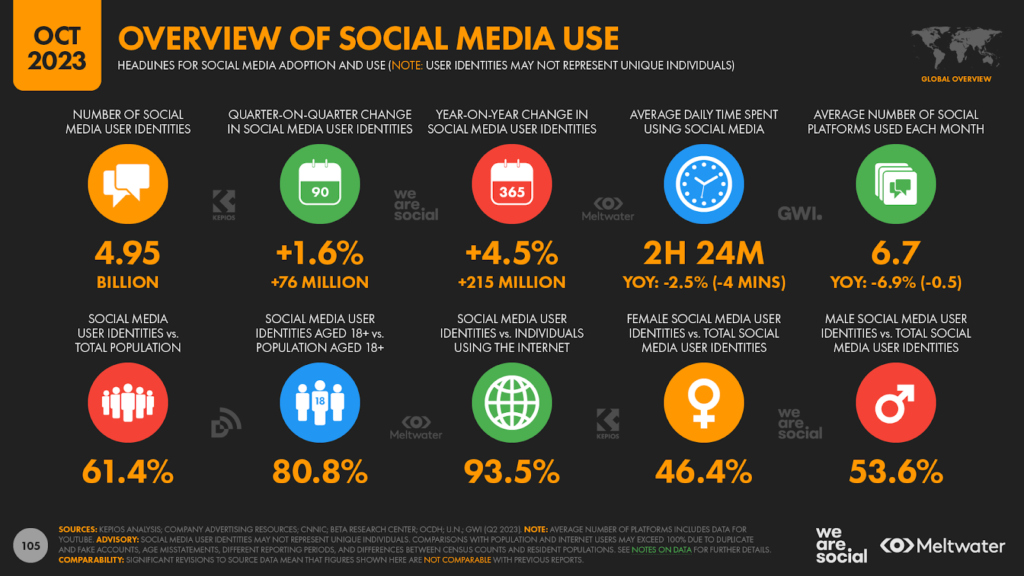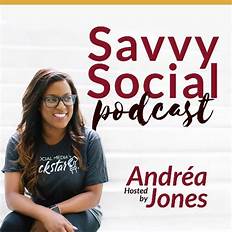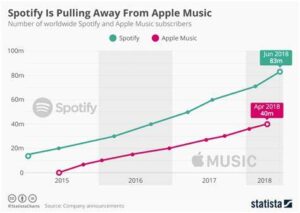Social Media Marketing
Social media marketing is the practice of using social media platforms and tools to promote your business and connect with your audience. By leveraging the power of social media platforms and the tools they offer; businesses can not only showcase their products or services but also engage with their customers on a personal level. The intended outcomes can range from the somewhat abstract Driving web traffic, increasing sales, and nurturing customer loyalty are all common goals of social media marketing. Social media marketing is about building relationships with your audience in the places they already spend their time online. This might look like promoting your latest product drop, or simply jumping in on a trend that your audience is interested in.
How does social media marketing work?
In a nutshell, social media marketing works by promoting your brand to social media audiences. Businesses get a platform to say who they are, what they do, and why you should buy from them, and customers get to see a wide range of products, services, and offers all from the comfort of their phone or computer.
There are many ways you can promote your business using social media, from creating hilarious video content that shows your audience your relatable side, to crafting high-quality data-driven reports to show your expertise in your industry.
Social media marketing activities can include:
- Content planning and creation: This is the most visible component of social media marketing. It’s the art of creating appropriate types of content for each platform to connect with the audience there.
- Content scheduling and publishing: This is the task of actually getting your content onto the appropriate platforms at the appropriate time.
- Social media analytics: Using analytics tools to track how content performs, report on progress towards social media goals, and plan ways to improve overall response.
- social listening: Using social media marketing tools to keep a virtual ear to the ground, learning what’s being said about your brand and your industry. This is also a powerful tool for competitor research.
- Community management: Connecting with followers to build a community online, then working to keep that community active and healthy by responding to messages and creating ongoing opportunities for engagement.
- Social media ads: Using paid tools on social networks to get your content in front of a larger audience. This may include working with the influencers or external content creators.
Successful social media marketing examples
Barbie goes social
The social media team also released a Barbie Selfie Generator tool that went absolutely viral, with celebrities and fans from around the world jumping on the trend. The selfie generator pulled in an additional 1 million actions for the brand, and the Barbie movie went on to break records at the box office.

Spotify Wrapped
Each year, Spotify users get to see all of the songs, playlists, genres, and albums that have topped their charts. Spotify makes it easy to share your Wrapped results on social media, leading to your entire feed being one long Wrapped recap.In 2021, the campaign saw a 461% increase in Tweets about Spotify Wrapped, with nearly 60 million Wrapped graphics shared across social media. By 2022, more than 156 million users were engaging with Wrapped.
why is it effective?
Marketing through social media is effective because it’s a place where more than half the global population hangs out. Not to mention, a whopping 76% of social media users have purchased something because they saw it on social media.

Measuring the performance of social media marketing
Key to effective social media marketing is knowing how your posts, ads, and content is performing. Tracking the right social media metrics, that is, the data points that show you how well your efforts are working, will help you optimize and improve on future content
Some of the most important metrics to track are:
- Engagement rate: The number of reactions, comments, and shares that your content gets, shown as a percentage of your audience.
- Audience growth rate: How many new followers your brand gets within a certain window of time.
- Click-through-rate (CTR): How often people click links in your content.
- Cost-per-click (CPC): How much money you have to spend per successful click.
- Conversion rate: How often a social post leads to a conversion event, be that a sale, subscription, download, donation, or otherwise.
- Customer satisfaction score (CSAT): A measurement of how happy customers are with your products and services.
- Net promoter score (NPS): A measurement of customer loyalty, which helps you understand how likely your customers are to continue interacting with your brand.
who inspires me on social media marketing ?

From unlocking social media platform algorithms to serving up creative inspiration, the Hootsuite blog continues to be one of the most high performing digital marketing blogs on the internet.
 Rachel Karten is a social media consultant who has created super successful social strategies for brands like Bon Appétit and Epicurious. Her newsletter, Link in Bio, is a resource for social experts, featuring opinions and tips shared by practicing social experts. Over the years, it has evolved into an active community with a job board and a Discord channel.
Rachel Karten is a social media consultant who has created super successful social strategies for brands like Bon Appétit and Epicurious. Her newsletter, Link in Bio, is a resource for social experts, featuring opinions and tips shared by practicing social experts. Over the years, it has evolved into an active community with a job board and a Discord channel.

Another helpful newsletter to add to your inbox is ICYMI by Lia Haberman. This weekly newsletter offers up the very best influencer trends, creator tips, and social media insights to help you get the most out of your social media marketing program.
 Mindful marketing podcast with Andrea Jones Perfect for throwing on during your evening walk, or when you’re jamming away on the perfect content calendar. Mindful Marketing deserves a staple spot on your playlist rotation.
Mindful marketing podcast with Andrea Jones Perfect for throwing on during your evening walk, or when you’re jamming away on the perfect content calendar. Mindful Marketing deserves a staple spot on your playlist rotation.
How to Create a Social Media Marketing Strategy
- Set clear goals.
- Research your buyer personas and audience.
- Determine which social platforms you’ll market on.
- Establish your most important metrics and KPIs.
- Get to know your competition.
- Create unique and engaging content.
- Organize a schedule for your posts.
- Review and adjust your strategy.
Start Marketing on Social Media
Considering there are billions of people on social media today, it’s easy to see why so many businesses and marketers use the channel to promote their products and engage with customers. Start working on your business’s social media marketing strategy today to increase your followers, improve engagement, and boost conversions. connect with me in this mail for more details and services.
hibarabiya01@gmail.com

